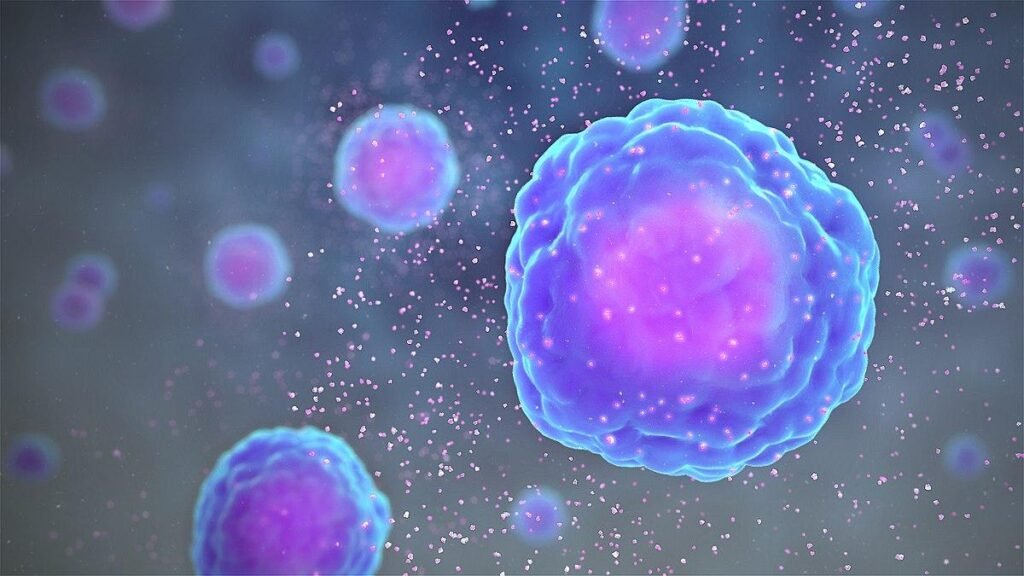Inflammatory responses within our body play a key role in diverse pathological states. Cytokines are small protein molecules that mediate inflammation and cell-cell crosstalk. The term ‘Cytokine’ is a generic name that includes lymphokine, monokine, chemokine, and interleukin, differing in their origin. Our immune system comprises different types of cells that coordinate their efforts to protect the body. These immune cells secrete cytokines as a means of communication among themselves.
Cytokine Analysis
Cytokines mediate and regulate immune and inflammatory responses through complex networks. They provide valuable clinical insights into pathophysiological processes that may help to diagnose and treat diseases. The cytokine profile, or the level of a single cytokine may help to assess the type of insult, injury, or infection within the body. Cytokines can also be used as a biomarker to stage the disease.
Various bioanalytical tools such as ELISA, PCR, advanced biosensors, and MSD cytokine analysis allow the detection and quantification of cytokines, both in vitro and in vivo, which is integral to pharmacokinetics (PK) studies.
Classification of Cytokines
Cytokines can be classified into tumor necrosis factors (TNFs), interleukins (ILs), interferons (INFs), monokines, lymphokines, colony-stimulating factors (CSFs), and transforming growth factors (TGFs). They can also be classified based on their origin and role in inflammatory processes. Cytokines can be pro-inflammatory and anti-inflammatory. Pro-inflammatory cytokines such as IL-1β, IL-6, IL-8, IL-12, and TNF-α assist in the up-regulation of inflammatory reactions and are associated with the initiation and persistence of inflammatory and neuropathic pain. They also trigger autoimmune inflammation. Alternatively, anti-inflammatory cytokines such as IL-4, IL-10, IL-11, IL-13, and TGF-β help to regulate the inflammatory responses triggered by the pro-inflammatory cytokines by suppressing immune cells. They not only help to suppress inflammatory processes but also help in recovery from autoimmune diseases. Interestingly, cytokine IL-6 has dual pro- and anti-inflammatory properties. Thus, a dynamic balance between pro- and anti-inflammatory cytokines regulates the immune system.
Significance of Cytokine Analysis
Cytokines have an indispensable role in our immune system. Pro- and anti-inflammatory cytokines play a cardinal role in inflammatory and immunologic responses. In addition, they help in the growth, differentiation, proliferation, and maturation of various immune cells. For example, cytokines assist in the maturation and differentiation of monocytes and dendritic cells; proliferation of B cells, activated T cells, and NK cells; growth and functioning of eosinophils and mast cells; activation of NK cells and macrophages; and other diverse functions.
Must Read: Comparing Cytokine Assays: ELISA vs. Multiplex Assays
Since cytokines regulate innate and adaptive immunity, they have clinical significance in diverse pathophysiological processes such as inflammation, pain, angiogenesis, tumorigenesis, atherosclerosis, infections, cancer, aging, autoimmune diseases, and neurological and neuropsychiatric disorders.
Given the vital role of cytokines in immunologic responses and pathological states, researchers have attempted to implicate cytokines in diseases as biomarkers. One such example includes the assessment of plasma levels of cytokines to distinguish sepsis from malaria since the clinical features of both diseases overlap, leading to an increased risk of misdiagnosis. Thus, cytokines can function as biomarkers to differentiate between diseases with similar clinical symptoms.
In addition to their potential role as biomarkers, cytokines have immense therapeutic prospects. Cytokines, particularly interleukins, have demonstrated therapeutic potential. IL-2 can stimulate the growth and proliferation of activated T cells and NK cells, integral components of immunologic responses in our body. IL-7, on the other hand, can drive the regeneration of T cells that get depleted during chemotherapy, thus helping restore immune function. Therefore, cytokines are promising therapeutic candidates to treat different diseases. However, several factors affect the cytokine level in the body, such as circulating soluble receptors, immunocompetence, and other variables; PK clinical trials help to explore further.
Thus, cytokines play a crucial role in our health and sickness. In addition, the diagnostic and therapeutic prospects of cytokines make them an important candidate from the perspective of research and analysis.



More Stories
Top PCD Pharma Franchise Companies in Bihar – Join the Best
Natural vs. Synthetic Estrogen Therapy: What’s Best for You?
Panathur: Perfect Your Smile with Teen Invisalign Today!